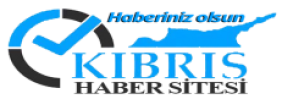Over the past three decades, various phenomena have profoundly transformed the landscape of information professionals. As companies reorganized, some documentation departments were split into several specialized departments and, conversely, some were grouped into a common entity.
A traditional position that enjoys a clearly defined, recognized status within the organization. Today, it is shaken by the development of the Internet and the proliferation of information resources. New occupations or new assignments, such as information and records managers, are occupying the space.
From now on, strictly limited occupations; The distinction between documentarian, archivist and librarian is blurring.
There are more and more meeting points. A profession like a document controller shows this blurring of boundaries.
In this function, the professional must manage the entire lifecycle of the document, from collection to archiving, including indexing.
Faced with information-obesity, librarians and documentarians must increasingly act as information mediators. Like a watchman, they should present information to the user at the right time according to their needs or improvise as information managers.
Today we will face very different realities. The decision makers, who are unaware of the subtleties of different titles, do not pay much attention to these differences.
Visibility and Skill Development Difficulty
In order to improve their work, the information professional must increasingly grasp the issue of their visibility or service. A user should bring his community together like an administrator.
With the help of new media and web technologies we now have a set of tools that make its versatility possible. Indeed, the Internet allows for creating spaces for curation, communicating on selected information, etc. makes it possible.
If he already has technical knowledge management skills, continuous training, it seems necessary to acquire and develop new skills in the face of all these difficulties.
Skills such as project management, management or information law are becoming more and more important to thrive in the professional world.
The development of these skills is not necessarily present in primary education. Few train future professionals in management, department management, managing teams, and keeping budgets.
Adapting existing training courses is therefore a real challenge. It is necessary to deal with the heterogeneity of the needs of the organizations. It would be interesting to design an initial training that promotes interdisciplinarity.
It is important to provide students with a common core around core knowledge topics. It is important to provide a solid foundation in librarianship or archival science, as well as in foreign languages, which are essential today.
There are also specificities in convergence between professions, mostly digital and data-oriented.
Beyond the common interdisciplinary core, it is important to offer several possible courses depending on the specialization desired.
At this point, the North American institutions and especially the I-Schools network seem to be leading the way.
In France, the National School of Information and Library Sciences follows the same path, offering a common core in the first year and then a specialization of your choice in business information management, archiving, library and cultural mediation.
It is important to support the development of the skills of already active professionals and to follow the evolution of the profession.
It is also important to design continuing education courses, diplomas, to allow for example a librarian or a documentarian to develop into a data role.
A new form of education, Moocs allows training throughout the professional life and the perfecting or acquisition of additional skills such as project management.
Yaşam Ayavefe




























Yorum Yazın